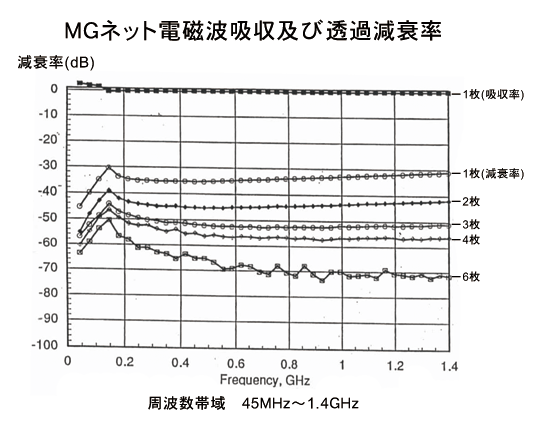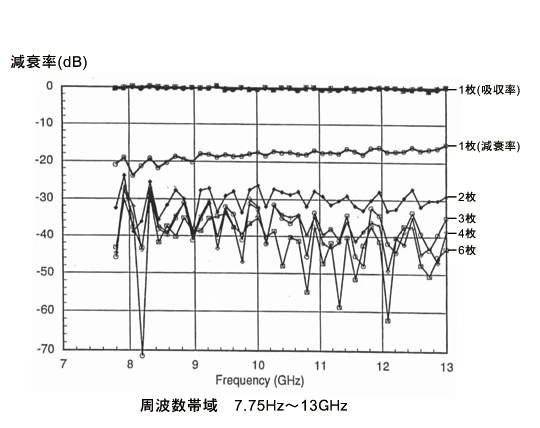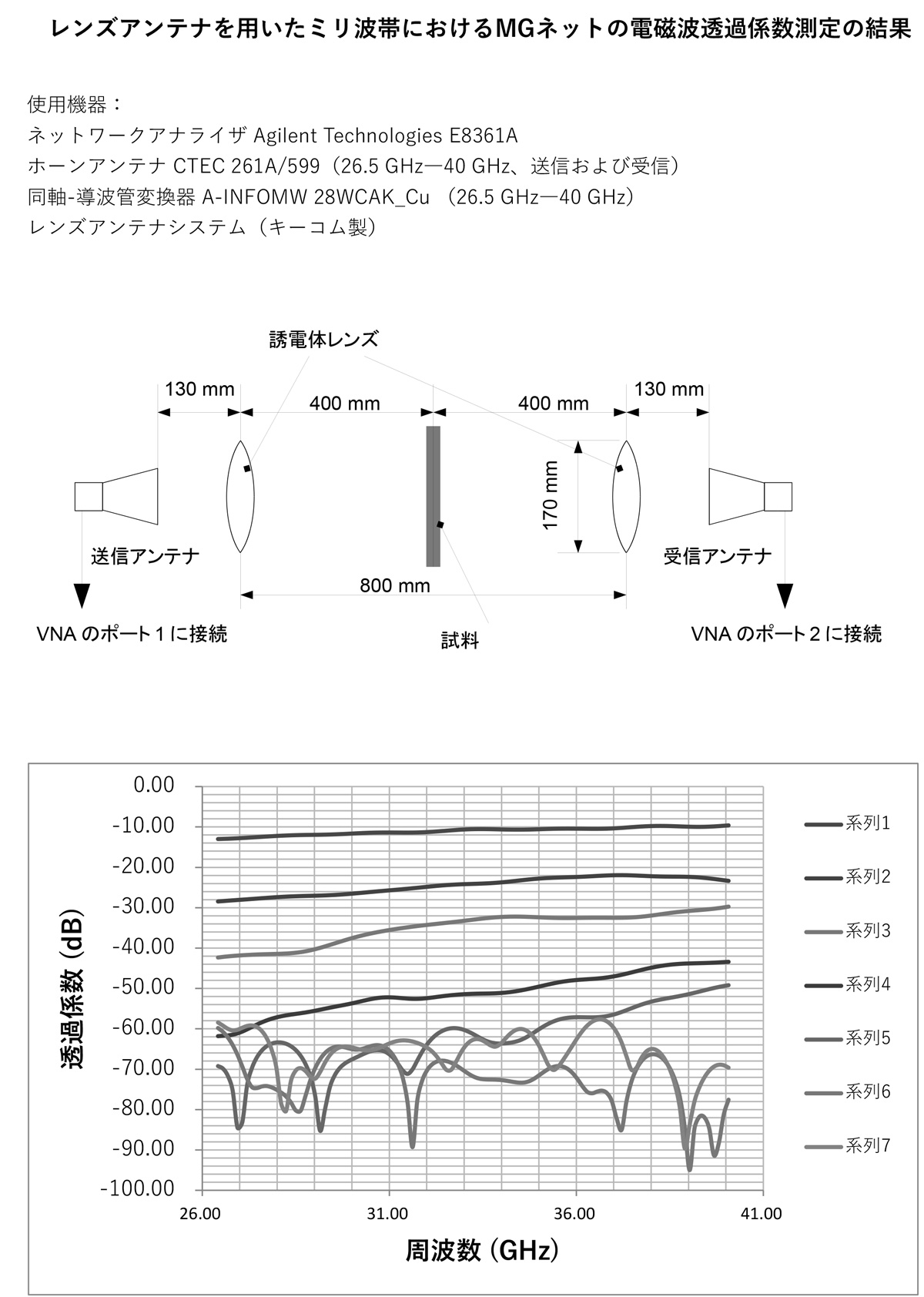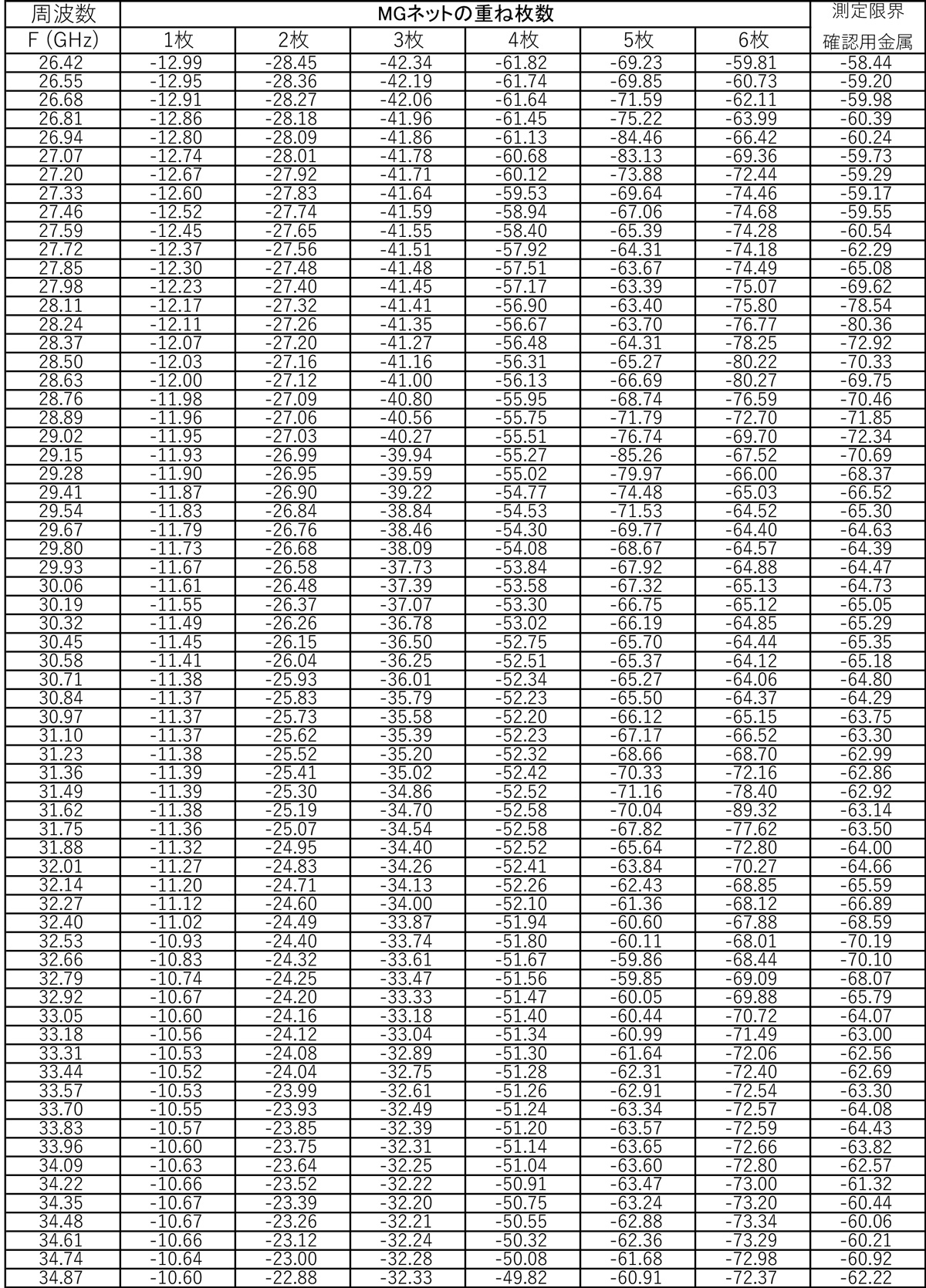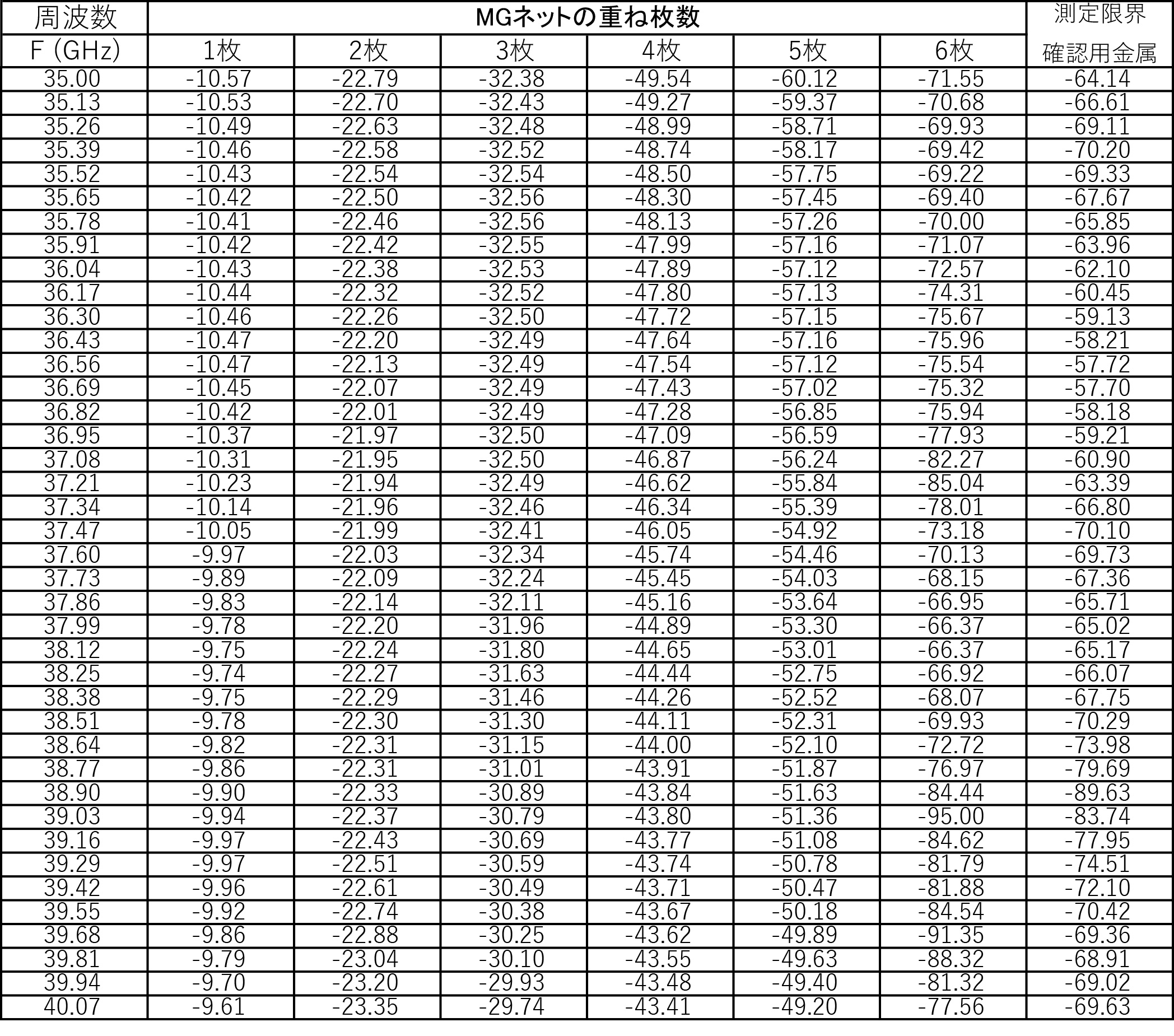MG Suit Menu(Tap to display menu)
Electromagnetic Shielding Material
For human bodyMGnet
Japanese Patent No. 392205 / U.S. Patent Number US6.855.883.B1
Reflects high frequency electromagnetic waves
MG(Microwave Guard)net
- ・Blocks high frequency electromagnetic waves (100kHz to several tens of GHz)
- ・Anti-static (static)
- ・High durability (resistant to bending and friction)
- ・High light transmittance, breathability, and heat dissipation
- ・Ultra-lightweight (20g/㎡)
- ・Conductive rust prevention processing (performance maintained for more than 2 years)
- ・Long fibers reduce the production of fluff and dust
- ・Won't fray even when cut
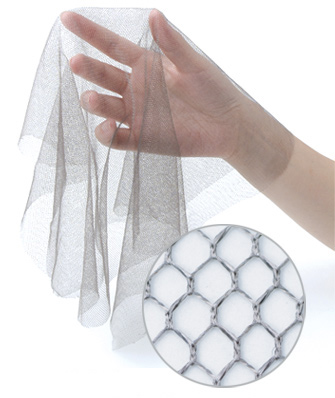
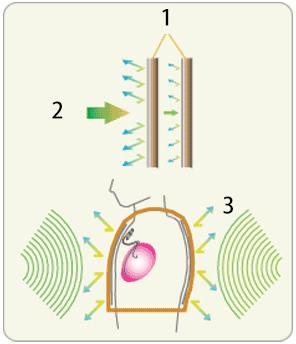
- 1.MGnet 2 layers
- 2.High frequency electromagnetic waves
- 3.Electromagnetic wave reflection
Silver Fiber(To nylon99.9% pure silverIt is a material made by weaving Nylon fiber (coated with) into a special honeycomb mesh (mesh size of about 1 mm), and it has the properties of "lightweight and flexible" nylon fiber, "conductivity, electromagnetic shielding, antibacterial properties" of silver, and "durability, translucency, ventilation and heat dissipation" of honeycomb mesh. In addition, it is treated with conductive rust prevention to prevent deterioration of the silver fiber.
Electromagnetic Shielding Test
KEC method electric field shielding data
The following is the electric field shielding data (in dB: decibels) for each frequency when 1 to 4 MGnet sheets are stacked.
※99% at 40dB, 99.9% at 60dBWhen used for electromagnetic wave protective clothing, the optimum shielding performance is MGnet double layer (32-40dB).
※If the shielding performance is too high (60dB or more), the effects of reflection and resonance will become greater, amplifying electromagnetic waves inside the human body and causing hot spots.
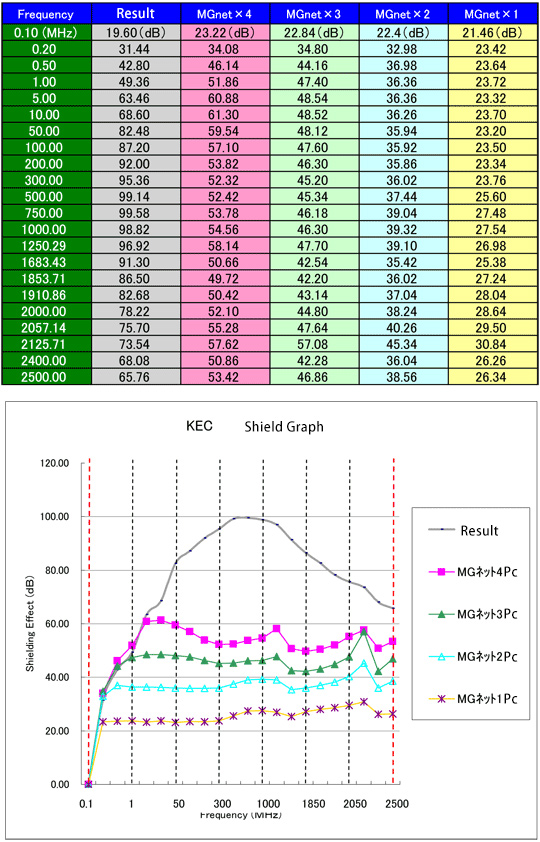
Comparison of shielding performance against near-field electric fields by overlapping MGnets (KEC method): Measurement limit indicates the measurement limit value. It can be seen that overlapping MGnets improves shielding performance against 1MHz to 2.5GHz high frequency electromagnetic waves from 20dB to 60dB.
KEC method for measuring electric field shielding
Comparison of electromagnetic shielding performance by overlapping MGnets
We compared the electromagnetic shielding performance by overlapping MGnets. The shielding performance against near electric fields was measured using the KEC method as shown on the right. The results are shown in the table and graph above. From these results, we can see that by overlapping MGnets, the shielding performance against high frequency electromagnetic waves from 1MHz to 2.5GHz is improved.
Measurement method for shielding effectiveness against near electric fields using the KEC method (Figure 1)
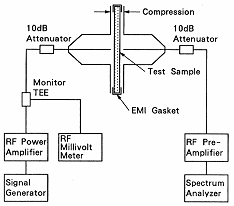
▲(Figure 1)
Free space method electric field shielding data
This is the electric field shielding data (in dB: decibels) when 1 to 6 MGnet sheets are stacked for each frequency.
Shielding performance evaluations of MGnet in each frequency band were carried out by HVS Technologies, Inc. (a specialist insti- tutional for electromagnetic absorbing shielding materials and test facilities attached to the Electro-Acoustic Research Center) in the United States. As a result, electromagnetic shielding performance was confirmed with a shielding rate of 30 to 40 dB or more at frequencies between 0.045 GHz and 1.4 GHz, and a shielding rate of 20 to 40 dB or more at frequencies between 7.75 GHz and 13.0 GHz. Details are shown in Table 2.
▼Table 2 Shielding performance evaluation for each frequency band of MGnet
| Test Date | December 10, 1997 |
|---|---|
| Measurement Facility | HVS Technologies, Inc.(Electromagnetic Absorption Shielding Materials and Testing Equipment Specialty Center of the Electroacoustic Research Center, USA) |
| Measurer | Prof. Vijay K. Varadan(Center for Electroacoustic Materials and Device Engineering, Pennsylvania State University, USA) |
| Electromagnetic wave shielding material used | MGnet |
| Measuring Equipment | HVS Free Space Microwave Measurement System |
| How to Measure | Measurement of electromagnetic wave absorption rate and transmission attenuation rate of MGnet using HVS Free Space Microwave Measurement System |
| Measurement results |
|
